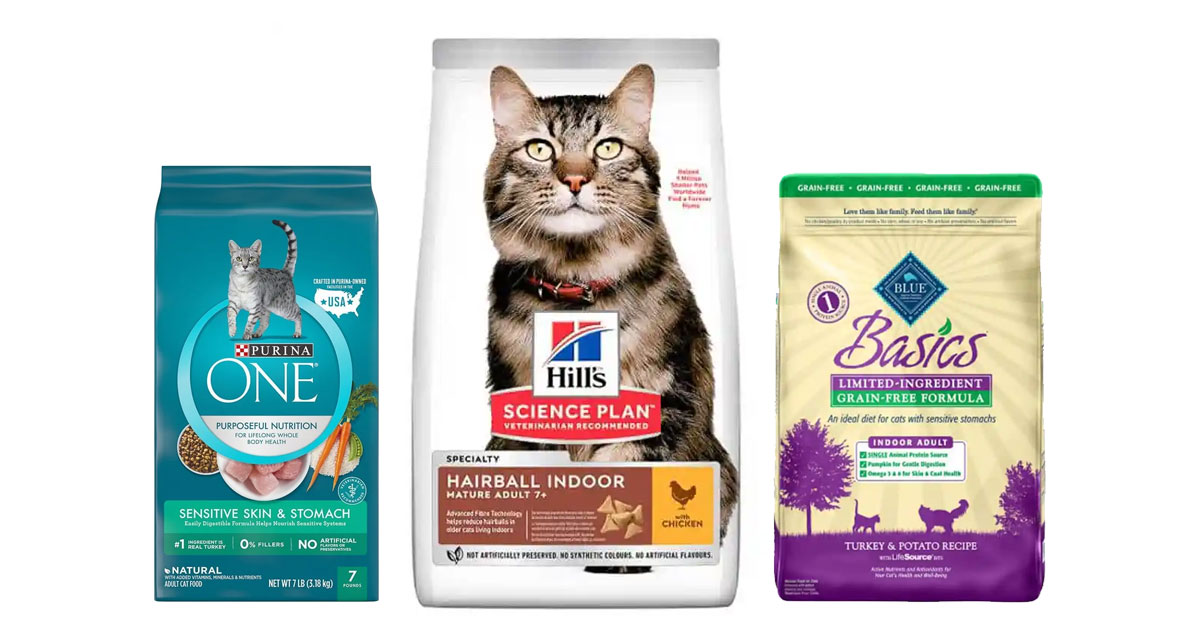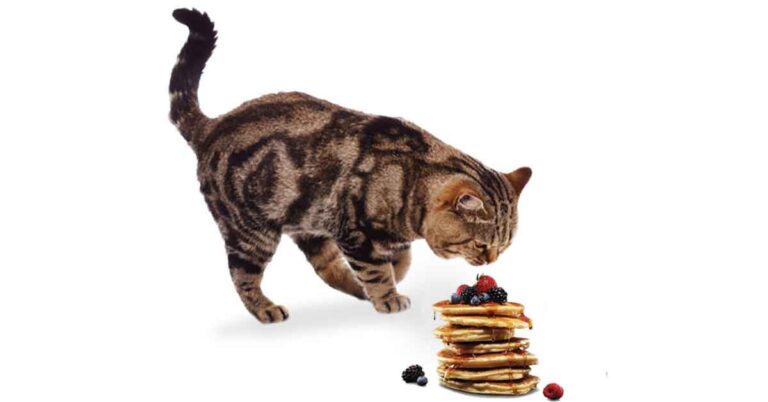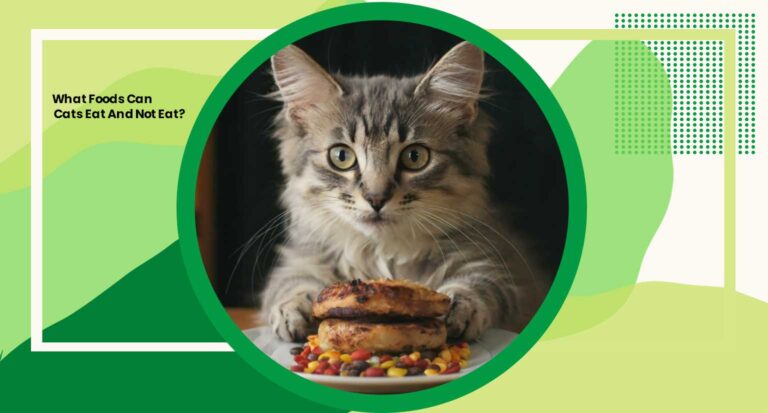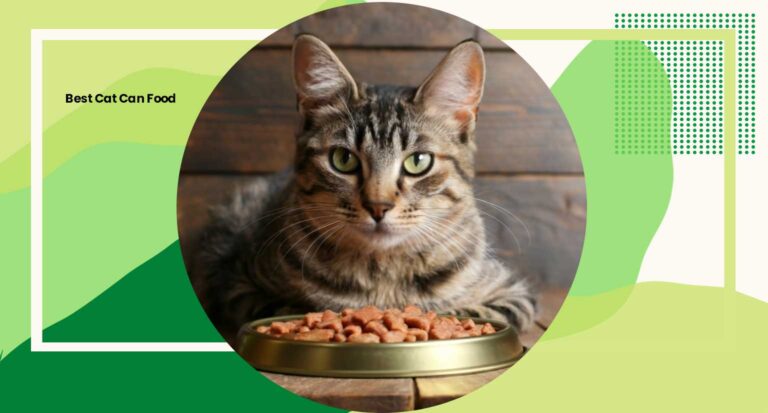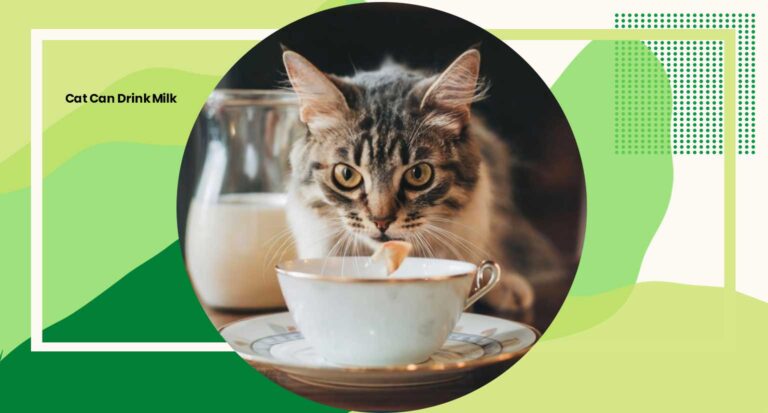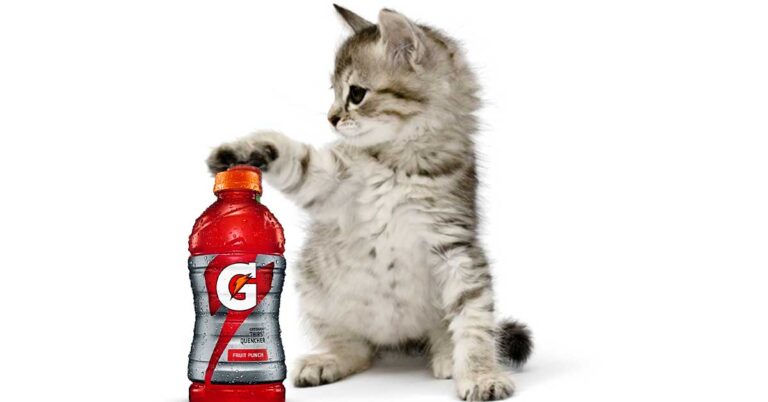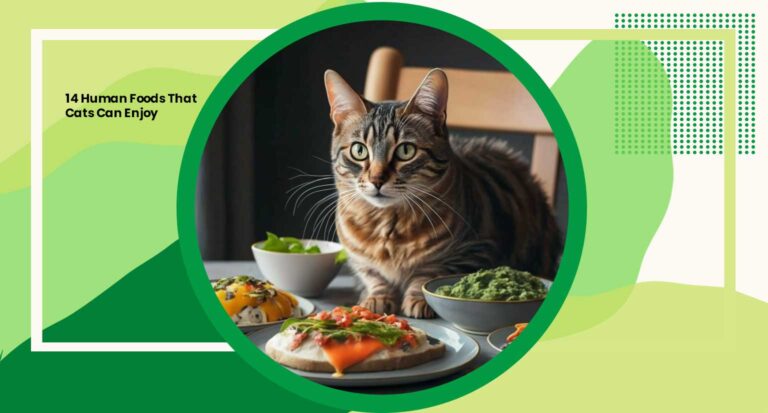Best Cat Food For Older Cats That Vomit
When it comes to the well-being of our feline friends, selecting the right food is pivotal. This task becomes even more critical as our beloved pets grow older, especially when dealing with issues like chronic vomiting.
The best cat food for older cats that vomit should not only meet their nutritional needs but also be easy on their sensitive stomachs.
Older cats, also known as senior cats, require a balanced diet enriched with essential nutrients. Pet parents must be discerning in what they feed their cats, ensuring a blend of high-quality ingredients, natural elements, and easily digestible proteins.
The food must support the immune system and cater to any food sensitivities, common health issues like kidney disease, and specific needs of older cats, such as weight loss.
The journey to find the best cat food for your senior cat can be daunting, with the market offering an array of dry and wet food options.
This guide is here to aid cat owners in navigating this vital journey, showcasing the best choices for older cats that struggle with vomiting.
With a focus on high-quality, natural ingredients like real turkey and sweet potatoes, we aim to help you ensure your cat’s diet promotes a healthy digestive system, skin, and overall health.
Understanding Older Cats and Vomiting
As cats age, their dietary needs and digestive abilities can change significantly. Much like humans, older cats’ bodies aren’t as robust in handling food as they once were, often leading to various digestive issues and sensitivities.
Frequent vomiting is one such issue that can turn the joy of mealtime into a distressing event for both the cat and the cat parent.
Vomiting in older cats can be due to a myriad of factors, ranging from food allergies to more serious health concerns like kidney disease, inflammatory bowel disease, or even food poisoning.
It could also be a result of feeding them the wrong type of food or human food that’s simply too rich for the cat’s stomach to handle. The selection of the right food can help manage these issues and minimize the risk of an upset stomach and subsequent vomiting.
A cat’s diet plays an integral role in maintaining a healthy digestive tract and bolstering the immune system. The right choice of cat food can aid in healthy digestion, provide the necessary vitamins, amino acids, and essential fatty acids, promoting overall health.
It is always a good idea to introduce new food items gradually into your cat’s diet and observe how they respond to ensure their nutritional needs are met without upsetting their digestive system.
Importance of Diet for Senior Cats with Sensitive Stomachs
The diet of a senior cat can significantly impact its health, especially if it’s dealing with a sensitive stomach. Proper nutrition plays a pivotal role in managing food sensitivities and preventing conditions that lead to chronic vomiting. Therefore, finding the best cat food for older cats that vomit is a crucial task for pet parents.
The main ingredient in the food should be a high-quality, easily digestible protein such as real chicken meat or fish. Ingredients like corn gluten meal, wheat gluten, and soybean meal can often cause food allergies in cats and should be avoided. Instead, consider options that have limited ingredients and are free from artificial flavors and colors.
Furthermore, wet cat food can be an excellent choice for older cats with a sensitive stomach as they typically have a high moisture content that aids digestion and prevents dehydration. Wet food is also generally more palatable for cats, which can be particularly helpful if your old cat has lost some of its sense of taste.
A balanced diet for your senior cat should also include essential vitamins, such as Vitamin E, which supports a healthy immune system, and essential fatty acids, which promote healthy skin and a shiny coat. High-quality ingredients like sweet potatoes can provide these nutrients, contributing to a balanced diet.
Lastly, remember to consult with a vet before making significant changes to your cat’s diet, especially if your cat has a history of vomiting or other health issues.
Wet Food vs Dry Food
The age-old debate among cat owners often revolves around whether to choose wet or dry food for their feline friends. Each type has its own benefits and drawbacks, and the best choice ultimately depends on your cat’s needs and preferences.
Wet cat food, often richer in protein and lower in carbohydrates, provides a texture and taste that many cats prefer. With its high moisture content, it aids in hydration and can be particularly beneficial for cats with a sensitive stomach, frequent vomiting, or those suffering from kidney disease. Wet food can also be a good choice for older cats with dental issues or decreased sense of smell and taste.
On the other hand, dry cat food offers convenience and can be left out for free-feeding without spoiling. It’s less messy and easier to store than wet food, making it a favorite among many cat parents. Plus, the crunchy texture of dry food can help keep your cat’s teeth clean by reducing plaque buildup.
But it’s crucial to choose a high-quality dry food option for older cats that vomit, which means avoiding those with high grain content and artificial ingredients. Look for products where the first ingredient listed is a real meat source, such as chicken or turkey.
Some cat owners find that a mix of both wet and dry food works best for their pets, providing a balanced and varied diet. As always, when considering the best cat food for your senior cat, keep in mind their unique dietary needs, any health issues, and their personal preferences.
Most Recommended Cat Foods
Finding the best cat food for older cats that vomit involves careful consideration of your cat’s specific needs, its taste preferences, and the quality of ingredients. Here are a few highly recommended options that excel in these areas:
Royal Canin Aging 12+
Royal Canin Aging 12+ is a wet cat food designed specifically for cats over 12 years of age. It contains easily digestible proteins, balanced levels of essential vitamins, and omega-3 fatty acids that promote a healthy skin and coat. Its soft texture is perfect for older cats that might have dental issues. It’s a good choice for those looking for high-quality ingredients that support healthy aging.
Hill’s Science Diet Senior
Hill’s Science Diet Senior provides precisely balanced nutrition tailored for cats with sensitive stomachs and skin. This dry food is made with natural ingredients, and it’s a great source of vitamin E and omega-6 fatty acids. Hill’s Science Diet also avoids artificial colors, flavors, and preservatives, making it an excellent choice for older cats with food sensitivities.
Purina Pro Plan PRIME PLUS Adult 7+
Specifically tailored for cats seven years and older, Purina Pro Plan PRIME PLUS Adult 7+ is a blend of both dry and wet food options that provide essential nutrients, including antioxidants and prebiotic fiber. The formula is designed to support a strong immune system, a healthy skin and coat, and a well-functioning digestive tract.
Blue Buffalo Sensitive Stomach
Blue Buffalo offers a sensitive stomach formula for cats who often experience digestive issues. The primary ingredient is real meat, providing cats with high-quality, animal-based protein. It also includes essential vitamins, minerals, and antioxidants to support your cat’s overall health and well-being.
Each of these cat food brands brings something unique to the table, catering to different aspects of senior cat health and wellness. However, it is always a good idea to consult with your vet before making changes to your cat’s diet, especially if your cat is prone to vomiting or has other health issues.
Royal Canin
Royal Canin, a trusted name in the pet food industry, offers a range of products that focus on the unique needs of cats at different life stages. Their Aging 12+ wet cat food is specifically designed for older cats, and it’s an excellent choice for those prone to vomiting.
One of the standout features of Royal Canin Aging 12+ is its easily digestible proteins, which are gentle on a cat’s sensitive stomach. The high-quality ingredients in the food are chosen with senior cats in mind, ensuring they receive all the essential nutrients they need. Real meat is always the main ingredient in this food, providing cats with a good source of protein.
What makes Royal Canin an excellent choice is its attention to older cats’ needs. The company understands that as cats age, their dietary needs change. Therefore, they have included added supplements like essential vitamins, omega-3 fatty acids, and antioxidants that support a healthy immune system, good skin health, and a shiny coat.
Royal Canin Aging 12+ also considers the fact that older cats may have dental issues, making it harder for them to chew dry food. The wet food formula of Royal Canin provides a softer and easier to eat alternative. Plus, the additional moisture in the wet food aids in digestion and helps keep senior cats hydrated.
While it’s always recommended to gradually introduce new food to your cat’s diet, Royal Canin Aging 12+ can be a beneficial addition to your older cat’s feeding routine, especially if they have a sensitive stomach and frequent vomiting issues.
Hill’s Science Diet
Hill’s Science Diet has established its place in the pet food market by formulating products based on extensive scientific research. Their Senior dry food range is carefully designed to cater to the unique nutritional needs of older cats, making it an ideal choice for those who vomit frequently.
This food uses high-quality, easily digestible ingredients that are gentle on a cat’s stomach. Real chicken is the primary ingredient, supplying older cats with a good source of lean protein. Hill’s Science Diet also refrains from using artificial colors, flavors, and preservatives, reducing the likelihood of food sensitivities.
One of the key attributes of Hill’s Science Diet Senior is its focus on promoting healthy digestion. The recipe includes a blend of prebiotic fiber to nourish gut bacteria and support a balanced gut flora, resulting in a healthier digestive tract. This can significantly help manage digestive issues and reduce incidents of vomiting in senior cats.
Moreover, it includes a balanced mix of vitamins, minerals, and amino acids essential for older cats. It’s fortified with Vitamin E and Omega-6 fatty acids to support skin health and provide a glossy coat. The food is also designed to promote strong bones and joints, an important aspect of health for older cats.
If you’re looking for a dry food option that respects your senior cat’s nutritional needs, digestive health, and overall well-being, Hill’s Science Diet Senior could be a great choice.
Purina Pro Plan
Purina Pro Plan PRIME PLUS Adult 7+ is another excellent option for pet parents seeking high-quality food for their senior cats. This line offers both wet and dry food varieties, allowing you to choose based on your cat’s preferences and dietary needs.
Protein-rich real turkey or chicken is the main ingredient in this cat food, ensuring that your cat is receiving high-quality, animal-based protein. This protein source is not only delicious but also easily digestible for older cats, reducing the risk of stomach upset and vomiting.
What makes Purina Pro Plan PRIME PLUS Adult 7+ stand out is its blend of essential nutrients, including antioxidants and prebiotic fiber. These nutrients contribute to a strong immune system, a well-functioning digestive tract, and healthy skin and coat. Moreover, it includes ingredients like fish oil that supply essential fatty acids, promoting joint health – a crucial factor for older cats.
This cat food also takes into account the oral health of older cats. The dry food variant is specifically shaped and textured to help reduce plaque and tartar buildup, contributing to good oral health.
In summary, if you’re looking for a high-quality, balanced diet that supports the overall health of your senior cat, Purina Pro Plan PRIME PLUS Adult 7+ is worth considering. As always, remember to introduce new food gradually into your cat’s diet and consult with your vet if your cat has frequent vomiting issues or other health concerns.
Iams Proactive Health
Iams Proactive Health Mature Adult is an excellent dry food option designed with senior cats in mind. This product aims to support overall health and wellness in older cats, making it a great choice for those who experience frequent vomiting.
The main ingredient in this cat food is real chicken, a high-quality source of protein that helps maintain strong muscles in aging cats. Iams Proactive Health avoids fillers, artificial colors, and preservatives that might trigger food sensitivities, reducing the chances of upsetting your cat’s stomach.
One of the distinguishing features of Iams Proactive Health is its focus on promoting healthy digestion. The formula includes a tailored fiber blend with prebiotics and beet pulp that aids your cat’s digestive system. This not only helps manage vomiting issues but also contributes to better nutrient absorption.
Moreover, this food is rich in antioxidants to support a strong immune system, crucial for older cats. It also includes essential nutrients like calcium and potassium to support heart health and maintain strong bones and joints. The formula is also enriched with Omega-6 fatty acids for healthy skin and a shiny coat.
If you’re seeking a dry food option that provides a well-rounded diet and takes care of your senior cat’s specific needs, Iams Proactive Health Mature Adult is worth considering. As always, ensure a slow transition when introducing new food to your cat’s diet, and consult with your vet if your cat has persistent vomiting or other health concerns.
Blue Buffalo Sensitive Stomach
Blue Buffalo Sensitive Stomach is a holistic, dry cat food tailored for adult cats with sensitive stomachs, making it a solid option for older cats that vomit regularly. With high-quality, natural ingredients, this cat food is designed to provide a balanced diet while supporting digestive health.
The first ingredient in Blue Buffalo Sensitive Stomach is real chicken meat, providing your cat with high-quality animal protein. This aids in maintaining healthy muscles while being gentle on the digestive system. Moreover, the inclusion of brown rice and oatmeal offers easily digestible carbohydrates.
This cat food stands out for its LifeSource Bits – a blend of antioxidants, vitamins, and minerals selected by veterinarians and animal nutritionists to support the immune system, life stage requirements, and a healthy oxidative balance. It’s this attention to detail that makes Blue Buffalo a good option for older cats with sensitive stomachs.
Moreover, it includes fatty acids like Omega-3 and Omega-6, which contribute to a shiny coat and healthy skin, an essential aspect of overall health. Blue Buffalo also avoids using poultry by-product meals, corn, wheat, soy, artificial flavors, or preservatives that might trigger food sensitivities.
Overall, if your senior cat has a sensitive stomach and experiences frequent vomiting, Blue Buffalo Sensitive Stomach might be the answer. It’s always recommended to slowly transition your cat to a new food, monitoring their response, and seeking veterinary advice for persistent vomiting or other health concerns.
Identifying Food Allergies and Sensitivities
Cats, just like humans, can develop food allergies and sensitivities at any age. In older cats, these can sometimes manifest as frequent vomiting or digestive upset. Recognizing the signs and understanding how to manage these issues is crucial for your cat’s health and comfort.
Food allergies in cats are typically an immune response to a specific protein source such as chicken, beef, dairy products, or fish. Symptoms can range from gastrointestinal issues, like vomiting and diarrhea, to skin problems such as itching, redness, and sores.
On the other hand, food sensitivities or intolerances do not involve an immune response but can cause similar symptoms. Often, these are a reaction to artificial flavors, colors, preservatives, or certain grains like wheat and corn gluten meal.
If you suspect your cat has a food allergy or sensitivity, it’s a good idea to consult your vet. They might suggest an elimination diet, where you remove potential allergens from your cat’s diet and gradually reintroduce them to identify the culprit. This process can be time-consuming but it’s crucial in pinpointing the exact cause of your cat’s discomfort.
Once you’ve identified the offending food items, the next step is to find a cat food that avoids these ingredients but still provides all the essential nutrients your cat needs. Many pet food manufacturers offer limited ingredient diets or hypoallergenic cat food designed specifically for cats with food allergies or sensitivities.
It’s important to read the ingredient list carefully and opt for foods with high-quality ingredients that support your cat’s overall health and wellbeing.
Remember, changing your cat’s diet should be a gradual process. Sudden changes can cause further upset to your cat’s sensitive stomach. A slow transition, typically over a week or two, can help your cat adjust to the new food without adverse effects.
Understanding and managing food allergies and sensitivities in your senior cat is not an easy task, but it’s an integral part of ensuring their comfort and health during their golden years.
Tips for Transitioning to New Food
Changing your cat’s diet, especially if they have a sensitive stomach or are prone to vomiting, needs to be done gradually and thoughtfully. Here are some tips to help you transition your older cat to a new food smoothly and effectively.
1. Start Slowly: Begin by mixing a small amount of the new food with your cat’s current food. Gradually increase the new food’s proportion while reducing the old one over a period of about one to two weeks. This slow change helps your cat’s digestive system adjust to the new diet and minimizes the risk of upsetting their stomach.
2. Monitor Your Cat’s Response: Keep a close eye on your cat’s reaction during the transition period. If they experience vomiting, diarrhea, or loss of appetite, it might be an indication that the new food isn’t suitable for them. If such symptoms persist, consult your vet.
3. Make it Palatable: Older cats can be particularly picky eaters. To encourage them to try the new food, you can slightly warm wet food or add a bit of warm water to dry food to enhance the smell and flavor.
4. Maintain Regular Feeding Times: Consistency is key. Keeping regular feeding times during the transition can provide a sense of comfort and routine for your cat.
5. Consult Your Vet: Always consult your vet before making significant changes to your cat’s diet, particularly if they have health issues. Your vet can provide personalized advice based on your cat’s needs and can monitor their health throughout the transition.
Introducing a new food to your older cat might take some patience and time, but with careful planning and a slow transition, it can lead to improved health and potentially less vomiting for your feline friend. Keep in mind, every cat is unique, and what works for one might not work for another. Always prioritize your cat’s comfort and health when deciding on a new diet.
Potential Health Issues
While adjusting your cat’s diet can often help manage issues like frequent vomiting, it’s important to be aware that this symptom could also be indicative of underlying health problems. Older cats, in particular, are prone to several health conditions that may affect their digestive system. Let’s explore some of these potential issues.
Kidney Disease: Common in senior cats, kidney disease can result in loss of appetite, weight loss, vomiting, and other digestive issues. If your cat is vomiting frequently, drinking more water than usual, and losing weight, it’s critical to consult with your vet.
Inflammatory Bowel Disease (IBD): IBD is a condition where the cat’s stomach or intestines are chronically inflamed, which can lead to vomiting, diarrhea, and weight loss. This condition requires veterinary intervention and often dietary adjustments.
Hyperthyroidism: This is a common endocrine disorder in older cats where the thyroid gland produces an excess of thyroid hormone. Symptoms can include vomiting, weight loss despite increased appetite, and increased thirst and urination. Hyperthyroidism requires veterinary treatment.
Cancer: While less common, some forms of cancer can cause vomiting in cats. If the vomiting is accompanied by other unusual symptoms such as lethargy, rapid weight loss, or changes in behavior, it’s crucial to get your cat examined by a vet.
Food Poisoning: Cats can get food poisoning from eating spoiled food or certain types of human food. Symptoms typically include vomiting, diarrhea, loss of appetite, and lethargy. If you suspect food poisoning, contact your vet immediately.
In conclusion, while the right food can make a significant difference in managing vomiting in older cats, it’s important not to ignore the potential of underlying health issues.
Regular veterinary check-ups are vital in early detection and treatment of these conditions. Remember, the best approach to your cat’s health is always a combination of balanced nutrition, regular vet visits, and plenty of love and care.
Additional Tips for Senior Cat Care
Taking care of a senior cat involves more than just managing their diet. As cats age, their needs change, and so should the care they receive. Here are some additional tips for ensuring your senior cat’s wellbeing:
1. Regular Veterinary Check-ups: Routine vet visits are crucial for early detection of health issues common in older cats. These can include kidney disease, hyperthyroidism, diabetes, and dental problems. Regular blood tests, urine analysis, and physical exams can help keep tabs on your cat’s health.
2. Mental Stimulation: Keep your cat mentally stimulated with toys, puzzle feeders, and interaction. While they may not have the energy of a kitten, senior cats still enjoy playtime and engagement.
3. Maintain a Healthy Weight: Weight gain in senior cats can lead to a host of health problems, including diabetes and arthritis. On the flip side, weight loss can be a sign of health issues like kidney disease or hyperthyroidism. Keep an eye on your cat’s weight and consult your vet if you notice any significant changes.
4. Keep them Hydrated: Hydration is particularly important for older cats, as they are at higher risk of kidney disease. Always provide fresh water, and consider wet food or a cat water fountain to encourage more drinking.
5. Proper Grooming: Regular grooming is vital for senior cats. Regular brushing helps prevent hairballs and also gives you a chance to check for abnormalities such as lumps, skin problems, or changes in fur quality.
6. Dental Care: Dental disease is common in older cats and can lead to serious health problems if left untreated. Regular dental check-ups along with a diet that supports dental health can help.
7. Monitor Litter Box Use: Changes in your cat’s litter box habits can be an early sign of a number of health issues. Monitor for changes in frequency, volume, or appearance of your cat’s waste, and report any abnormalities to your vet.
Remember, every cat ages differently. Some may remain spry and active well into their senior years, while others may show signs of slowing down earlier on.
Observing your cat and being attuned to any changes in behavior, eating habits, or overall health is the best way to ensure they live their golden years in comfort and good health.

